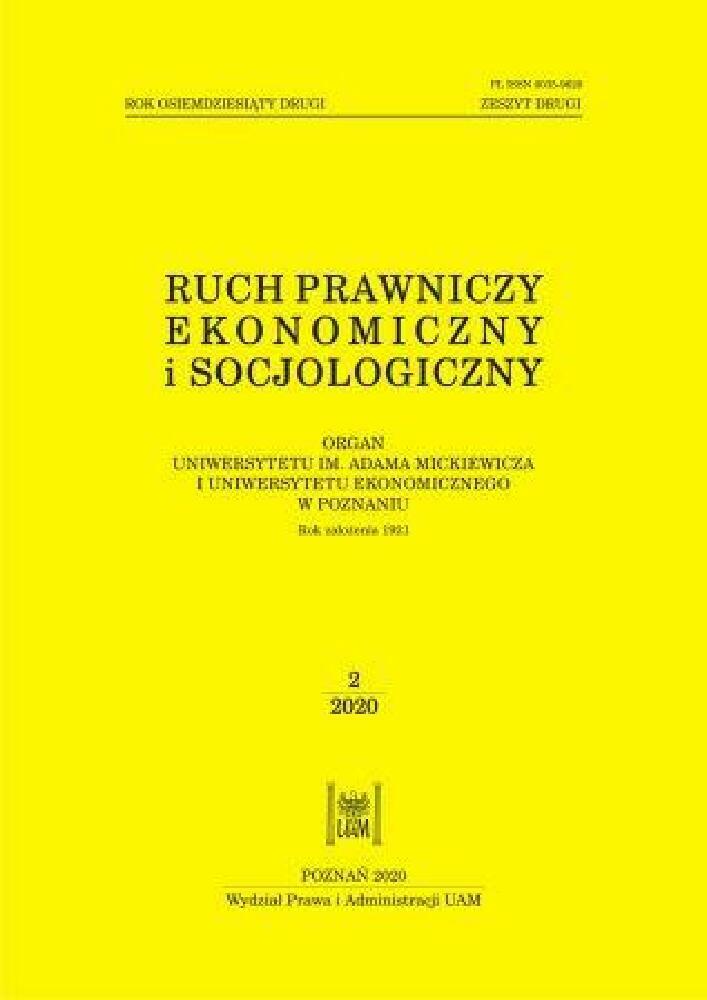Abstract
African swine fever is undoubtedly an extremely dangerous disease for swine and boars. It also causes major economic loss. However, in Poland the fight against the disease seems to have been used as an of instrument of social engineering. The solutions introduced in Poland – such as the extermination of the population of wild boars – will not provide the expected level of biosecurity. Methods that are recommended by experts worldwide focus on biosecurity, but this measure is
not successfully enforced in Poland. A wider, socio-cultural analysis of how discourses related to ASFV and other diseases are used reveals that this is very complex phenomena.
References
De Mello, M. (2012). Animals and Society: An Introduction to Human-Animal Studies. New York: Columbia University Press.
Destoumieux-Garzón, D., Mavingui, P., Boetsch, G., Boissier, J., Darriet, F., Duboz, P., Fritsch, C., Giraudoux, P., Le Roux, F., Morand, S., Paillard, Ch., Pontier, D., Sueur, C., Voituron, Y. (2018). The One Health Concept: 10 Years Old and a Long Road Ahead. Frontiers in Veterinary Science 5. <www.frontiersin.org/article/10.3389/fvets.2018.00014>.
Frant, M., Woźniakowski, G., Pejsak, Z. (2017). African swine fever (ASF) and ticks: no risk of tick-mediated ASF spread in Poland and Baltic states. Journal of Veterinary Research 61(4): 375–380.
Goffman, E. (2005). Piętno. Tłum. A. Dzierżyńska, J. Tokarska-Bakir. Gdańsk: Gdańskie Wydawnictwo Psychologiczne.
Hager, D., Rekiel, A. (2015). Świnie miniaturowe – zwierzęta towarzyszące. Wiadomości Zootechniczne 53(3): 180–191.
Harrison, R. (2013). Animal Machines: The New Factory Farming Industry. Publisher: CABI.
Holst, A. (2016). Chinese Propaganda Posters in Mao’s Patriotic Health Movements: From Four Pests to SARS. <https://www.academia.edu/35083393/Chinese_Propaganda_Posters_in_Maos_Patriotic_Health_Movements_From_Four_Pests_to_SARS>.
Jarynowski, A., Płatek, D., Krzowski, Ł., Gerylovich, A., Belik, V. (2019). African Swine Fever-potential biological warfare threat. doi: 10.13140/RG.2.2.32360.62725
Kruczyński, Z. (2008). Farba znaczy krew. Gdańsk: Słowo/Obraz Terytoria. Mamzer, H. (2018). Przyroda groźna? Biofobia jako usprawiedliwienie konieczności polowań. „Zoophilologica.Polish Journal of Animal Studies 4: 149–162.
Manzoor Butt, K., Sajid, S. (2018). Chinese Economy under Mao Zedong and Deng Xiaoping.
Journal of Political Studies 25(1): 169:178.
Markowska-Daniel, I., Pejsak, Z. (2014). Afrykański pomór świń materiały szkoleniowe dla lekarzy weterynarii. <https://www.wetgiw.gov.pl/nadzor-weterynaryjny/afrykanski-pomor-swin>.
Mirbeau, O. (2003). Dingo. Editions du Boucher. Societe Octave Mirbeau. Pacioni, C., Kennedy, M.S., Berry, O., Stephens, D., Schumaker, N.H. (2018). Spatially-explicit model for assessing wild dog control strategies in Western Australia. Ecological Modelling
368, 246–256. doi:10.1016/j.ecolmodel.2017.12.001
Peng, X. (1987). Demographic consequences of the great leap forward in China’s provinces. Population and Development Review 13(4): 639–670.
Rancew-Sikora, D. (2009). Sens polowania. Warszawa: Wydawnictwo Naukowe Scholar.
Roncaglia, A. (2006). The Wealth of Ideas: A History of Economic Thought. Cambridge University Press.
Sontag, S. (1979). Illness as Metaphor. First Vintage Books Edition.
Sontag, S. (1989). AIDS and its Metaphors. Published by Allen Lane.
Sontag, S. (2016). Choroba jako metafora. AIDS i jego metafory. Kraków: Wydawnictwo Karakter.
Woźniakowski, G., Frączyk, M., Niemczuk, K., Pejsak, Z. (2016). Selected aspects related to epidemiology, pathogenesis, immunity, and control of African swine fever. Journal of Veterinary Research 60(2): 119–125. doi:10.1515/jvetres-2016-0017
Zacher, L. (2009). Biowładza i biopolityka (refleksje, przykłady, predykcje), [w:] J. Szymczyk, M. Zemło, A. Jabłoński (red.), Wiedza – władza. Lublin: 101–112.
License
Copyright (c) 2020 WPiA UAM

This work is licensed under a Creative Commons Attribution-NonCommercial-NoDerivatives 4.0 International License.





